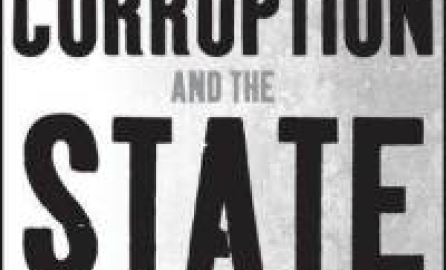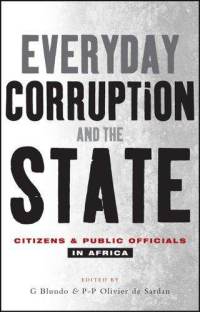Rather than corruption being seen as something inherently negative, it must be understood as a practice embedded in everyday aspects of a society that transcend normative concepts of illegality and illegitimacy, according to a detailed study on everyday corruption in Africa.
‘Everyday Corruption and the State – Citizens and Public Officials in Africa’ analyses the different forms of everyday corruption in West Africa, the corrupt strategies public officials resort to and how these forms and strategies have become embedded in the daily administrative practices of the state.
The book is the result of two years of extensive documentary and ethnographic work undertaken by six researchers in Benin, Senegal and Niger from 1999 to 2001. It focuses particularly on petty and institutional forms of corruption in the sectors of transports and customs, the legal system and public procurement.
“Corruption is a complex phenomenon which has various forms and which cannot be tackled with top-down and global policies”, explains Giorgio Blundo, co-author of ‘Everyday Corruption and the State’. “It is therefore important to have sector-wide approaches to help uncover the corruption practices in specific sectors.” To hear more from Mr Blundo, click on the icon below:
According to Mr Blundo, efforts to combat corruption often misunderstand its pervasiveness in everyday life and ignore the communal complicity of different actors who resort to corruption as a way of coping amidst administrative confusion and the dysfunction of public services.
“When we look at the literature on good governance, the notion of “accountability” is everywhere and it just looks like there is only one form of accountability, the one of the civil servant who is accountable to his hierarchy, to politicians and to public services users”, explains Mr Blundo. “On the contrary, we have discovered that in reality civil servants are torn apart by various pressures which are linked to the co-existence of both formal and informal institutions that can compete with each other. The consequence is that any attempt to enforce the law runs into many contradictory pressures. The civil servants have two options: do nothing or seek refuge in the world of corruption.”
The book goes on to suggest that instead of employing a “zero tolerance” policy towards corruption, new efforts might “advance in small steps, outlining steadily dividing lines between the acceptable and unacceptable.”
“Our work has shown that it was possible to stimulate debates inside the different administrations we worked with,” said Mr Blundo. “These kinds of debate can be painful but they help mapping problems and provide the “reformers” - people at local level who are engaged in the fight against corruption - we have met during our investigation with new arguments. Donors should help these “reformers” in turning their local initiatives into long term sustainable ones.”


(1)
Log in with your EU Login account to post or comment on the platform.
Most of the communities in India (such as Bengali), are succumbed in 'Culture of Poverty'(a theory introduced by an American anthropologist Oscar Lewis), irrespective of class or economic strata, lives in pavement or apartment. Nobody is at all ashamed of the deep-rooted corruption, decaying general quality of life, worst Politico-administrative system, weak mother language, continuous absorption of common space (mental as well as physical, both). We are becoming fathers & mothers only by self-procreation, mindlessly & blindfold. Simply depriving their(the children) fundamental rights of a decent, caring society, fearless & dignified living. Do not ever look for any other positive alternative behaviour (values) to perform human way of parenthood, i.e. deliberately co-parenting of those children those are born out of ignorance, real poverty. All of us are being driven only by the very animal instinct. If the Bengali people ever be able to bring that genuine freedom (from vicious cycle of 'poverty') in their own life/attitude, involve themselves in 'Production of Space’(Henri Lefebvre), at least initiate a movement by heart, decent & dedicated Politics will definitely come up.
- Siddhartha Bandyopadhyay, 16/4, Girish Banerjee Lane, Howrah-711101, India.